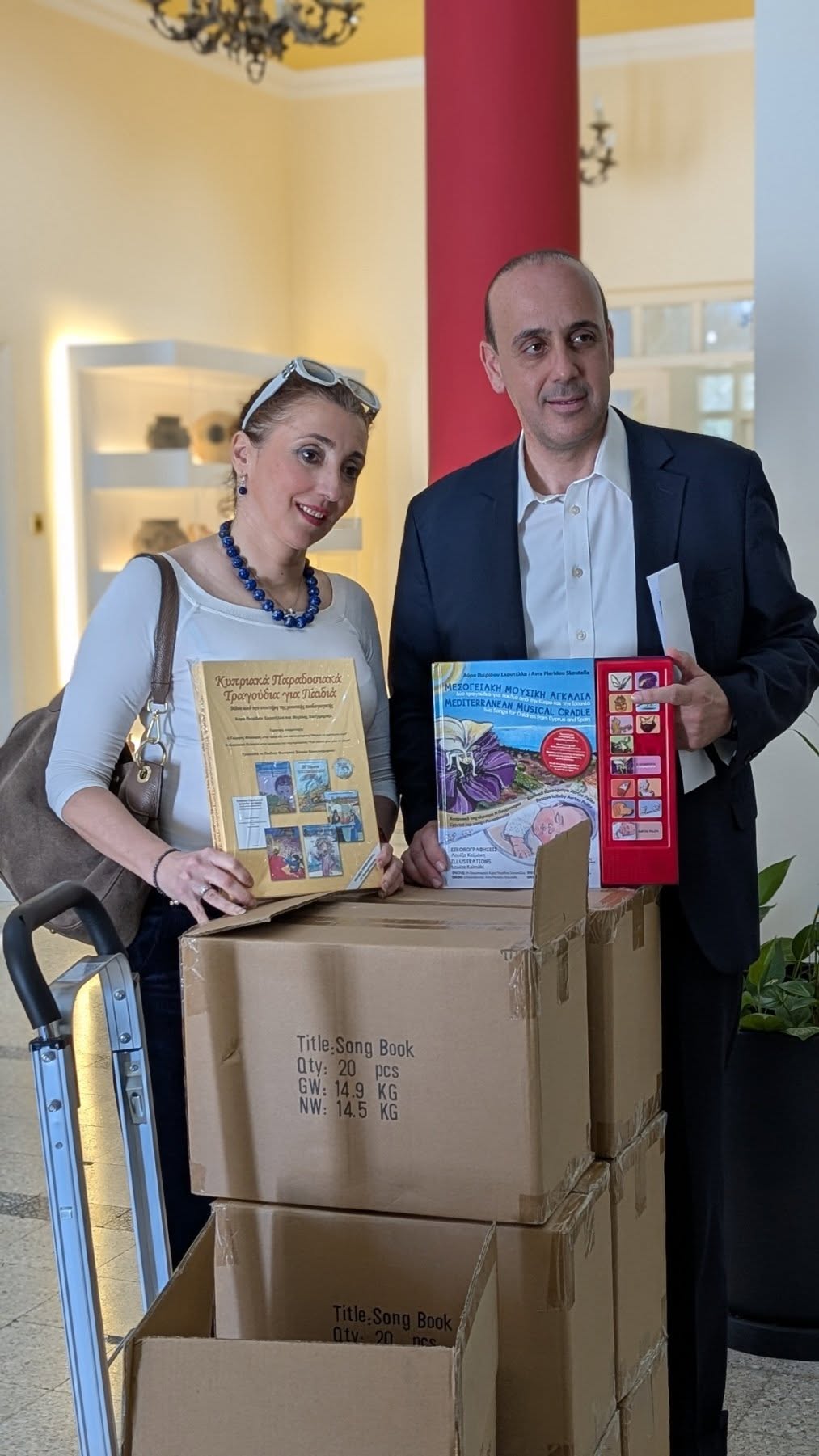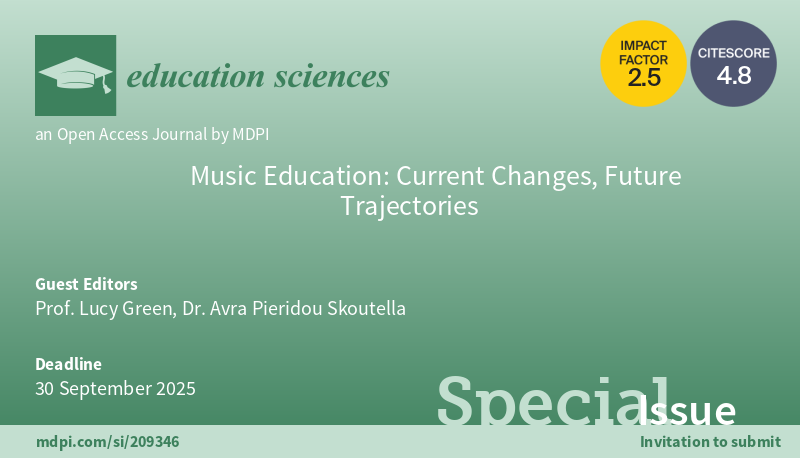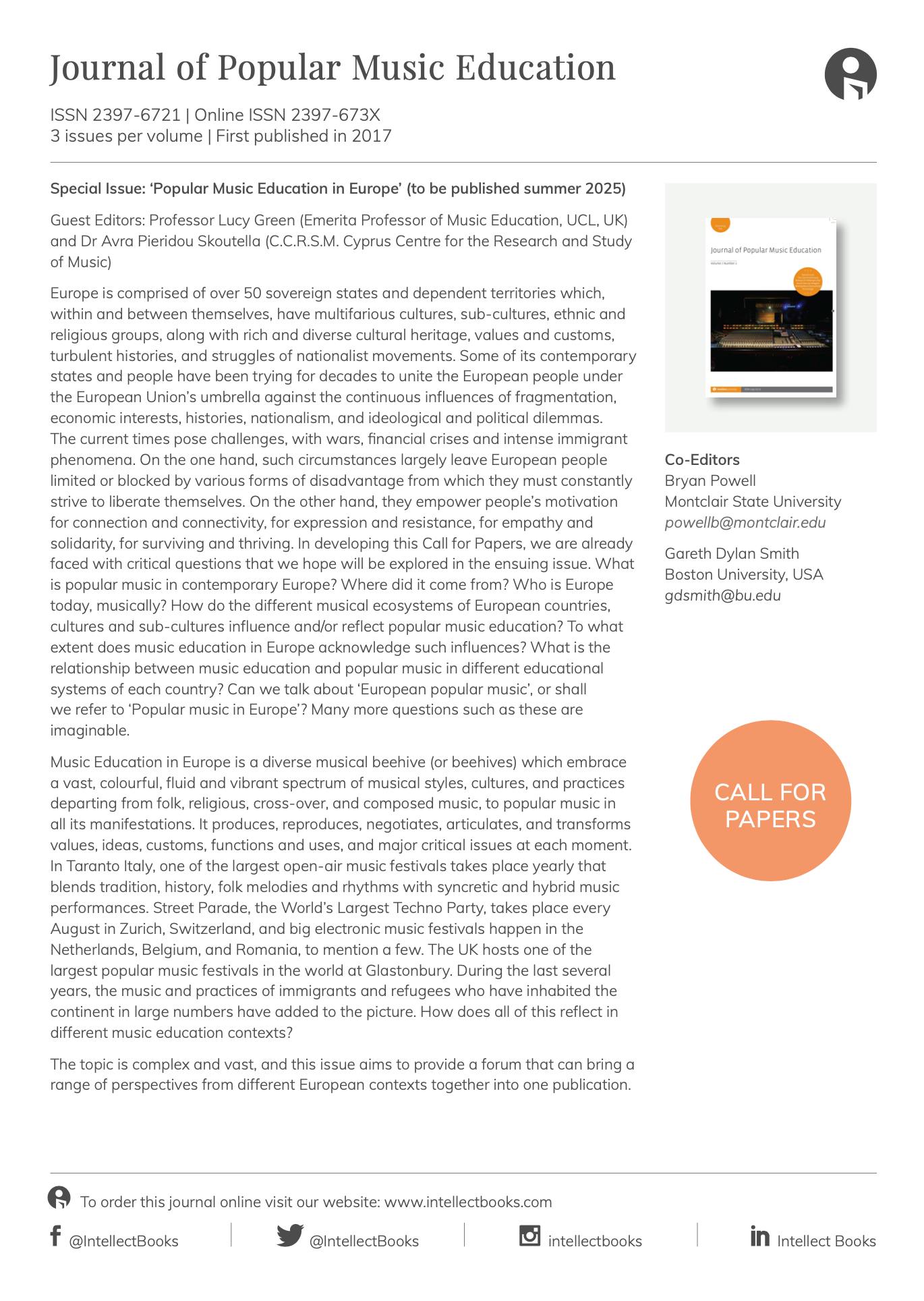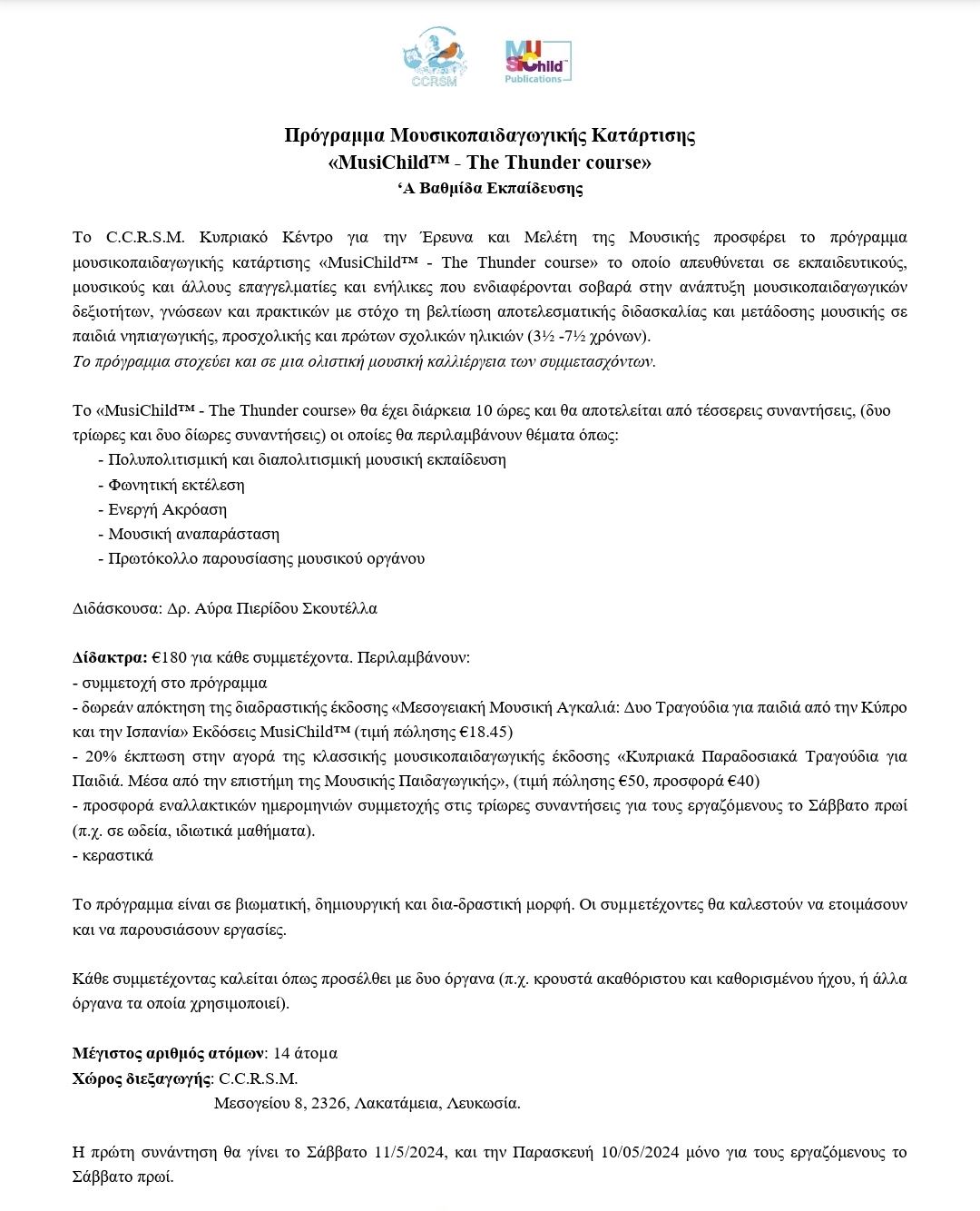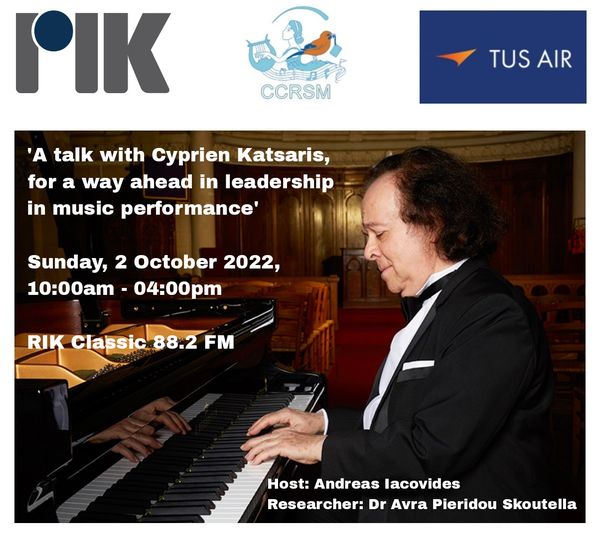CALL FOR PAPERS
Special Issue: ‘Popular Music Education in Europe’ (to be published summer 2025)
Guest Editors
Professor Lucy Green (Emerita Professor of Music Education, UCL, UK)
Dr Avra Pieridou Skoutella (C.C.R.S.M. Cyprus Centre for the Research and Study
of Music)
Europe is comprised of over 50 sovereign states and dependent territories which, within and between themselves, have multifarious cultures, sub-cultures,
ethnic and religious groups, along with rich and diverse cultural heritage, values and customs, turbulent histories, and struggles of nationalist movements.
Some of its contemporary states and people have been trying for decades to unite the European people under the European Union’s umbrella against the
continuous influences of fragmentation, economic interests, histories, nationalism, and ideological and political dilemmas.
The current times pose challenges, with wars, financial crises, and intense immigrant phenomena. On the one hand, such circumstances largely leave
European people are limited or blocked by various forms of disadvantage from which they must constantly strive to liberate themselves. On the other hand,
they empower people’s motivation for connection and connectivity, for expression and resistance, for empathy and solidarity, for surviving and thriving.
In developing this Call for Papers, we are already faced with critical questions that we hope will be explored in the ensuing issue. What is popular music in
contemporary Europe? Where did it come from? Who is Europe today, musically? How do the different musical ecosystems of European countries, cultures
and sub-cultures influence and/or reflect popular music education? To what extent does music education in Europe acknowledge such influences? What is
the relationship between music education and popular music in different educational systems of each country? To what extent can we talk about ‘European
popular music’, or shall we talk about ‘Popular music in Europe’? Many more questions such as these are imaginable.
Music education in Europe is a diverse musical beehive (or beehives) which embraces a vast, colourful, fluid and vibrant spectrum of musical styles, cultures,
and practices departing from folk, religious, crossover, and composed music to popular music in all its manifestations. It produces, reproduces, negotiates,
articulates, and transforms values, ideas, customs, functions and uses, and major critical issues at each moment. In Taranto, Italy, one of the largest open-air
music festivals takes place yearly that blends tradition, history, folk melodies and rhythms with syncretic and hybrid music performances. Street Parade, the
World’s Largest Techno Party, takes place every August in Zurich, Switzerland, and big electronic music festivals happen in the Netherlands, Belgium, and
Romania, to mention a few. The UK hosts one of the largest popular music festivals in the world at Glastonbury. During the last several years, the music and
practices of immigrants and refugees who have inhabited the continent in large numbers have added to the picture. How does all of this reflect in different
music education contexts?
The topic is complex and vast, and this issue aims to provide a forum that can bring a range of perspectives from different European contexts together into
one publication.
We invite contributions on, but not limited to, the following themes:
- Current situation of popular music education in different European countries
- Comparative perspectives across European countries and/or regions
- Cultural heritage, identities, belongingness, and popular music education in Europe
- Historical dimensions of popular music education in Europe
- Popular music education and European citizenship
- Critical issues of music education and popular music education (social justice, human rights, democracy, solidarity)
- Popular music education’s critical purposes for the creative future of European music
- Music ecosystems and community in Europe
- Immigrants and refugees to Europe and the role of popular music education in their lives
- Influence of European or global music industry and media on music education
- Interdisciplinary and transdisciplinary practices in European popular music education
- Creativities and technologies in European music education
- Popular music in European Higher Education, schools and other learning-and-teaching contexts
- The future of popular music education across European countries
Authors should submit manuscripts of between 4,000 and 6,000 words, although longer articles up to 8,000 will be considered (double-spaced, Times New
Roman,font size 12, including references). Please refer to the Intellect style guide when preparing a submission.
Full papers should be uploaded via the journal’s website at www.intellectbooks.com/journal-of-popular-music-education or using the submissions portal via
the JPME website by 1 September 2024. Review feedback by 15 November 2024 and submission of final manuscripts by 30 April 2025.
Enquiries are welcome and should be emailed to the issue’s guest editor, Dr Avra Pieridou Skoutella, at This email address is being protected from spambots. You need JavaScript enabled to view it.

